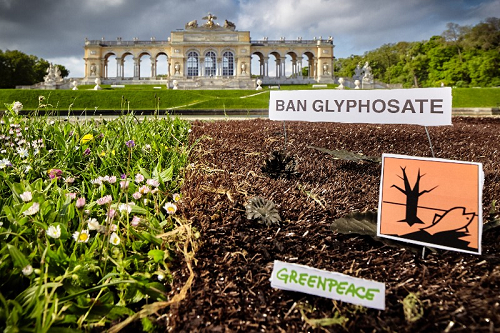Industry ties raise questions about UN body assessing glyphosate cancer risk
The FAO /WHO Joint Meeting on Pesticide Residues (JMPR) released an assessment on 16 May, which concludes that the controversial weedkiller glyphosate is “unlikely to pose a carcinogenic risk to humans from exposure through the diet”. The finding contradicts an earlier assessment by the WHO’s International Agency for Research on Cancer (IARC), which stated that glyphosate was a probable cause of cancer. However, the industry ties of at least two experts involved in the JMPR’s evaluation call into question whether the organisation has ensured the independence of its advice.

Alan Boobis and Angelo Moretto have ties to the International Life Sciences Institute (ILSI). ILSI Europe receives a majority of its operating and research funding from private companies, including glyphosate producers Dow and Monsanto. ILSI’s Health and Environmental Sciences Institute (HESI) is primarily funded by private companies, including glyphosate producers Dow, Monsanto and Syngenta.
Most scientists involved in the glyphosate assessment by the European Food Safety Authority (EFSA), which also contradicted the WHO cancer warning, refused to be named.
Greenpeace EU food policy director Franziska Achterberg said: “The agencies contradicting the WHO cancer warning seem to either rely on officials who prefer not to be named, or lack a watertight policy to protect their impartiality. Any decision affecting millions of people should be based on fully transparent and independent science that isn’t tied to corporate interests. It would be irresponsible to ignore the warnings on glyphosate and to re-licence this pesticide without any restrictions to protect the public and the environment.”
In 2006, the WHO reportedly barred ILSI from taking part in activities related to “setting microbiological or chemical standards for food and water”. The EFSA no longer allows its panel members to also work with ILSI. In 2010/11, two people (Diana Banati and Milan Kovac) had to step down from ILSI roles in order to be part of the EFSA management board. The board viewed ILSI as “representing interests of the food chain, other than public interests”.
Media reports indicate that the European Commission wants to extend the EU glyphosate licence by nine years or more, without EU-wide restrictions on its use, based on the EFSA assessment. The European Parliament requested restrictions to limit public exposure.
Source: Greenpeace EU Unit
- 289 reads
Human Rights
Fostering a More Humane World: The 28th Eurasian Economic Summi

Conscience, Hope, and Action: Keys to Global Peace and Sustainability

Ringing FOWPAL’s Peace Bell for the World:Nobel Peace Prize Laureates’ Visions and Actions

Protecting the World’s Cultural Diversity for a Sustainable Future

Puppet Show I International Friendship Day 2020

